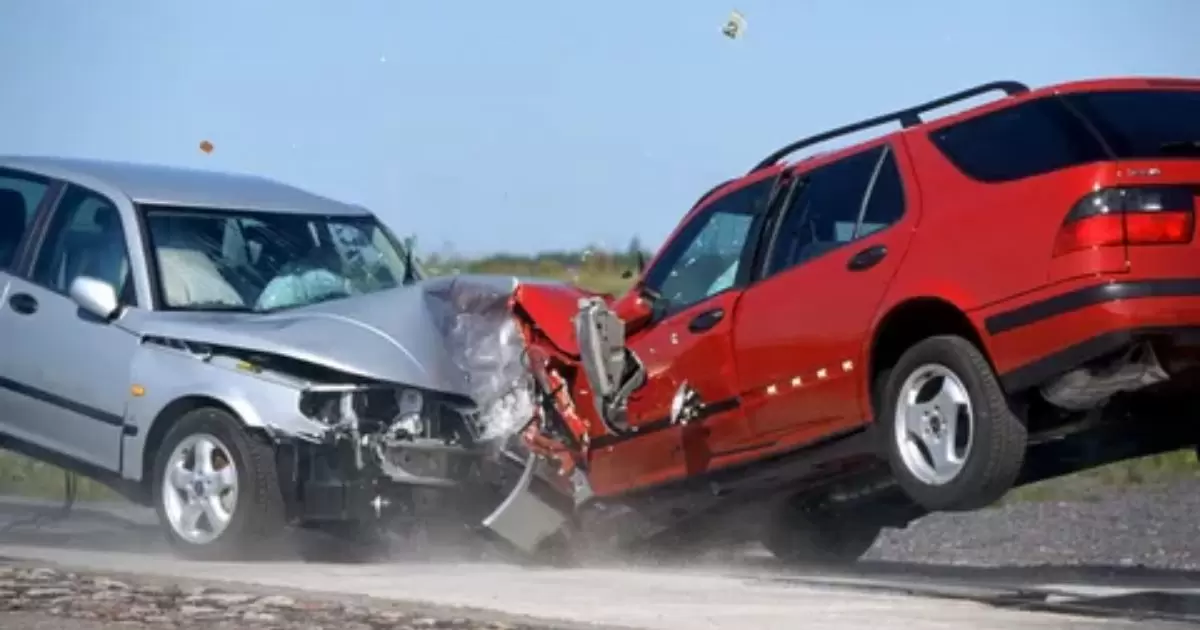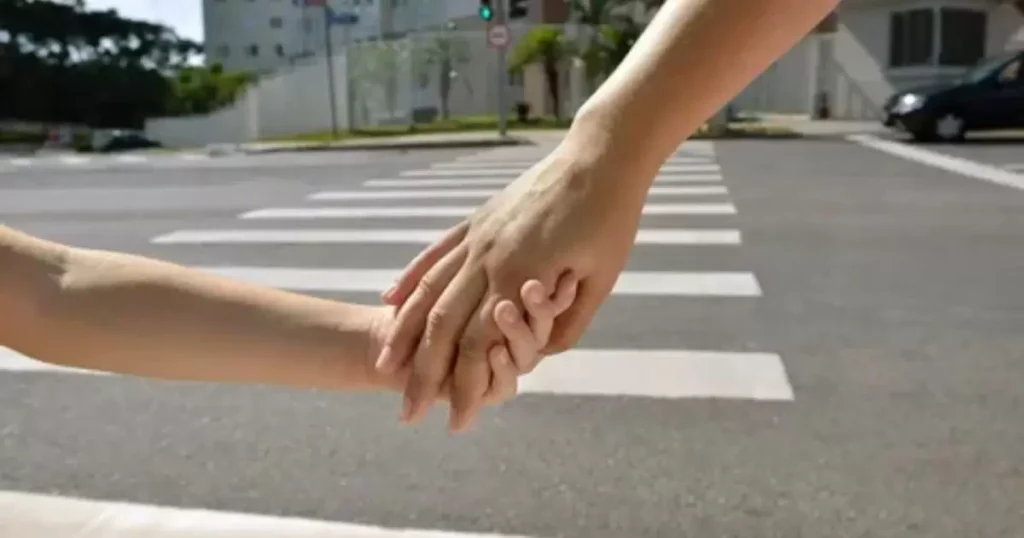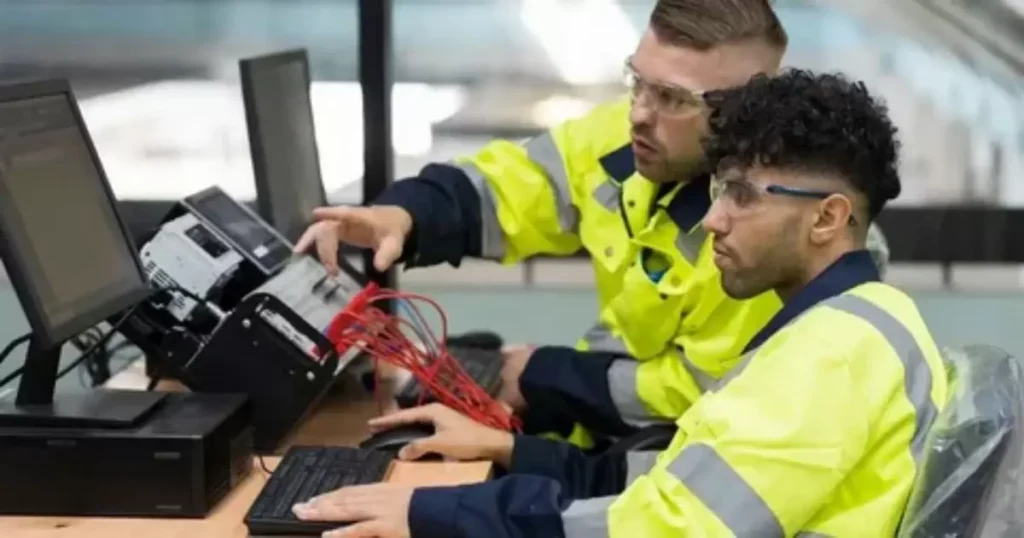
In the blink of an eye, lives can change forever on the road. The heart-wrenching story of Brittany Johns serves as a stark reminder of the fragility of life and the critical importance of road safety. This article delves deep into the circumstances surrounding her accident, its far-reaching impact, and the urgent call for change it has sparked in our community and beyond.
Introduction: The Harsh Reality of Road Accidents
Every day, countless drivers hit the road, never imagining they might not make it to their destination. Sadly, for Brittany Johns, a vibrant 23-year-old with a promising future, a routine drive turned into a tragedy that would shake her community to its core.
Road accidents claim lives indiscriminately, leaving families shattered and communities reeling. Brittany’s story isn’t just a statistic – it’s a powerful reminder that behind every crash, there’s a human story with ripple effects that touch us all.
The Fateful Day: Reconstructing the Accident
Timeline of Events
On June 15, 2023, at approximately 7:30 PM, Brittany Johns left her workplace, eager to meet friends for dinner. The sun was setting, casting long shadows across the winding country road she frequented. At 7:45 PM, just 10 minutes from her destination, tragedy struck.
Road and Weather Conditions
- Road type: Two-lane rural highway
- Weather: Clear skies, but setting sun causing potential glare
- Road surface: Dry, but with a sharp curve ahead
Eyewitness Accounts
Tom Miller, a local farmer, was the first on the scene. He recounts, “I heard the screech of tires and then a loud crash. When I ran out, I saw her car wrapped around a tree. It was awful.”
Another witness, Sarah Thompson, adds, “She must have been going too fast for that curve. I’ve always said it’s dangerous, especially when the sun’s in your eyes.”
Emergency Response Details
- 911 call placed at 7:47 PM
- First responders arrived at 7:55 PM
- Fire department used jaws of life to extract Brittany from the vehicle
- Airlifted to Regional Medical Center at 8:20 PM
Despite the swift response and valiant efforts of medical staff, Brittany succumbed to her injuries at 11:42 PM, surrounded by her devastated family.
Brittany Johns: A Life Remembered

Personal Background and Aspirations
Brittany Marie Johns was born on August 12, 1999, to Mark and Lisa Johns. An only child, she was the light of her parents’ lives. Brittany had recently graduated suma cum laude from State University with a degree in Environmental Science. She dreamed of working on sustainable energy solutions and had just landed her first job at a local green tech startup.
Brittany’s Achievements:
- Valedictorian of her high school class
- Full academic scholarship to State University
- Published research on urban farming techniques
- Volunteer coordinator for city’s annual river cleanup
Impact on Family and Friends
The loss of Brittany has left an unfillable void in the lives of those who knew her. Her mother, Lisa, shares, “Brittany was our everything. She had such a bright future ahead of her. It’s like the sun has gone out in our lives.”
Her best friend since childhood, Emma Rodriguez, recalls, “Brit was always the one pushing us to be better, to care more about the world around us. She believed we could make a difference, and now we have to carry on that legacy for her.”
Community Response and Tributes
The outpouring of support from the community has been overwhelming:
- A candlelight vigil attended by over 500 people
- The creation of the Brittany Johns Memorial Scholarship for Environmental Studies
- A tree-planting initiative in her honor, with 1,000 saplings planted citywide
- Annual “Drive Safe for Brittany” awareness campaign launched by local high schools
Unraveling the Causes
Primary Factors Leading to the Accident
- Speed: Investigators determined Brittany’s vehicle was traveling approximately 15 mph over the posted speed limit.
- Distraction: A partially composed text message was found on Brittany’s phone, suggesting she may have been texting while driving. Call a car accident lawyer if you ever get hurt in an accident caused by a distracted driver.
- Road Design: The curve where the accident occurred has been the site of several previous incidents, raising questions about its safety.
Secondary Contributing Elements
- Sun glare potentially obscuring visibility
- Lack of guardrails along the curve
- Possible wildlife crossing (deer tracks found near the scene)
Analysis of Potential Preventive Measures
| Measure | Potential Impact |
| Reduced speed limit | Could decrease severity of accidents |
| Installation of guardrails | May prevent vehicles from leaving the roadway |
| Improved signage | Could better warn drivers of upcoming hazards |
| Enhanced cell phone blocking technology | Might reduce distracted driving incidents |
The Ripple Effect: Beyond the Immediate Tragedy
Emotional Toll on Survivors and First Responders
The impact of Brittany’s accident extends far beyond her immediate circle. First responders, often unsung heroes, bear the emotional scars of such incidents.
Paramedic Jake Alvarez shares, “You never forget the faces of those you couldn’t save. Brittany’s accident reminds us why we do this job, but also how fragile life is.”
Local counselor Dr. Maria Chen notes a spike in PTSD symptoms among emergency personnel following the accident, highlighting the need for ongoing mental health support for these crucial workers.
Community Grief and Healing Process
The loss of a young, promising life has sent shockwaves through the community:
- Local schools implemented grief counseling sessions
- Community centers offered support groups for those affected by road accidents
- Art therapy workshops were organized to help process collective grief
Media Coverage and Public Discourse on Road Safety
Brittany’s story garnered national attention, sparking debates on road safety:
- Major news networks featured segments on the dangers of distracted driving
- Social media campaigns using #DriveSafeForBrittany went viral
- Op-eds in local and national papers called for stricter traffic laws and improved road designs
Road Safety: A Collective Responsibility

Current State of Road Safety in the Area
Key Statistics:
- 15% increase in road fatalities over the past year
- Distracted driving cited in 40% of accidents
- Rural roads account for 60% of fatal crashes despite lower traffic volume
Role of Individual Drivers
Every driver plays a crucial part in ensuring road safety:
- Adhering to speed limits
- Avoiding distractions (phones, eating, applying makeup)
- Never driving under the influence
- Regular vehicle maintenance
- Wearing seatbelts and ensuring proper child restraints
Government and Infrastructure Improvements
Local and state governments have begun implementing changes:
- Allocation of $5 million for road safety improvements
- Installation of rumble strips on rural highways
- Increased funding for state trooper patrols
- Proposal for mandatory defensive driving courses for license renewal
Technological Advancements in Vehicle Safety
Modern vehicles come equipped with life-saving features:
- Automatic Emergency Braking (AEB)
- Lane Departure Warning Systems
- Blind Spot Detection
- Adaptive Cruise Control
Case Study: The Impact of AEB A study by the Insurance Institute for Highway Safety found that vehicles equipped with AEB had 50% fewer front-to-rear crashes compared to cars without this technology.
Legal Ramifications and Policy Changes
Investigation Findings and Legal Proceedings
The official investigation into Brittany’s accident concluded with several key findings:
- Primary cause: Distracted driving (texting)
- Contributing factors: Excessive speed and hazardous road design
- No mechanical failures in the vehicle were found
While no criminal charges were filed, the findings have led to civil litigation against the county for unsafe road conditions.
Insurance Implications
The accident has prompted local insurance companies to reassess their policies:
- Increased premiums for drivers with distracted driving citations
- Discounts offered for completion of defensive driving courses
- Push for usage-based insurance programs that monitor driving habits
Proposed Changes to Local Traffic Laws
In response to the tragedy, lawmakers have introduced several bills:
- “Brittany’s Law”: Increasing penalties for texting while driving
- Mandatory installation of guardrails on curves with high accident rates
- Lowered speed limits on rural roads during sunset hours
Advocacy Efforts Sparked by the Accident
Brittany’s parents have become vocal advocates for road safety:
- Founded “Safe Roads for All” non-profit organization
- Lobbied state legislature for stricter distracted driving laws
- Partnered with tech companies to develop anti-distraction apps for drivers
Lessons Learned: Preventing Future Tragedies
Educational Initiatives
Schools and community organizations have ramped up efforts to educate about road safety:
- Integration of road safety modules into high school curricula
- Virtual reality simulations demonstrating the dangers of distracted driving
- Parent-teen safe driving contracts promoted by local DMV
Awareness Campaigns
Creative approaches to spreading the message:
- Billboard campaign featuring Brittany’s story
- Local celebrities enlisted for PSAs on radio and TV
- Annual “Put It Down” day encouraging a 24-hour phone-free pledge
Improved Driver Training Programs

Overhaul of driver education to address modern challenges:
- Mandatory hours of night driving and rural road experience
- Simulation training for hazardous conditions
- Emphasis on recognizing and managing driver fatigue
Enhanced Enforcement Strategies
Law enforcement agencies have adopted new tactics:
- Unmarked vehicles specifically targeting distracted drivers
- Increased checkpoints during high-risk times (holidays, prom season)
- Use of drones to monitor dangerous road sections
The Road Ahead: Honoring Brittany’s Memory
Scholarships and Foundations in Her Name
Brittany’s legacy lives on through educational opportunities:
- The Brittany Johns Environmental Scholarship: Annual $10,000 grant for students pursuing environmental studies
- Brittany’s Green Future Fund: Supporting local eco-friendly initiatives
Community-Driven Safety Projects
Grassroots efforts inspired by Brittany’s passion for community involvement:
- “Brittany’s Curves”: A volunteer group that plants reflective markers along dangerous rural roads
- Annual “Safe Streets” fair promoting road safety and sustainable transportation
Annual Remembrance Events
Keeping Brittany’s memory alive while promoting a crucial cause:
- Brittany Johns Memorial 5K Run/Walk for Road Safety
- Candlelight vigil and pledge ceremony on the anniversary of the accident
FAQS
Q: What were the main factors that contributed to Brittany Johns’ accident?
A: The primary factors contributing to Brittany Johns’ accident were: Excessive speed (approximately 15 mph over the posted limit) Distracted driving (a partially composed text message was found on her phone) Hazardous road design (a sharp curve that had been the site of previous incidents) Secondary factors included potential sun glare and the lack of guardrails along the curve.
Q: What changes have been implemented or proposed as a result of this tragedy?
A: Several changes have been implemented or proposed, including: “Brittany’s Law”: A bill to increase penalties for texting while driving A $5 million allocation for road safety improvements Installation of rumble strips on rural highways Proposals for mandatory defensive driving courses for license renewal The creation of the Brittany Johns Memorial Scholarship for Environmental Studies Launch of the annual “Drive Safe for Brittany” awareness campaign
Q: How has the community responded to Brittany’s accident?
A: The community response has been significant and multifaceted: A candlelight vigil attended by over 500 people A tree-planting initiative with 1,000 saplings planted citywide Implementation of grief counseling sessions in local schools Formation of support groups for those affected by road accidents Creation of “Safe Roads for All” non-profit organization by Brittany’s parents Widespread use of #DriveSafeForBrittany on social media to raise awareness
Q: What role does technology play in preventing similar accidents?
A: Technology plays a crucial role in modern vehicle safety: Automatic Emergency Braking (AEB) has been shown to reduce front-to-rear crashes by 50% Other important features include Lane Departure Warning Systems, Blind Spot Detection, and Adaptive Cruise Control There’s a push for enhanced cell phone blocking technology to reduce distracted driving Some insurance companies are promoting usage-based insurance programs that monitor driving habits
Q: How can individuals contribute to improving road safety in light of this tragedy?
A: Individuals can contribute to road safety in several ways: Adhering to speed limits and avoiding distractions while driving Participating in or organizing community-driven safety projects like “Brittany’s Curves” Attending or supporting annual remembrance events like the Brittany Johns Memorial 5K Run/Walk for Road Safety Advocating for stricter traffic laws and improved road designs Completing defensive driving courses and encouraging others to do the same Supporting organizations like “Safe Roads for All” that promote road safety awareness
Conclusion
The tragic loss of Brittany Johns serves as a heartbreaking reminder of the importance of road safety. Her story has become a catalyst for change, sparking improvements in infrastructure, technology, and public awareness. As we remember Brittany, we’re called to action – to drive more safely, to advocate for better roads, and to look out for one another.
Every time we get behind the wheel, we carry a responsibility not just to ourselves, but to every other person on the road. Brittany’s life, though cut short, continues to save others through the changes her story has inspired. Let’s honor her memory by committing to safer roads for all.
In the words of Brittany’s father, Mark Johns, “If sharing our daughter’s story saves even one life, then her death will not have been in vain. Drive safe, be present, and cherish every moment. That’s what Brittany would have wanted.




